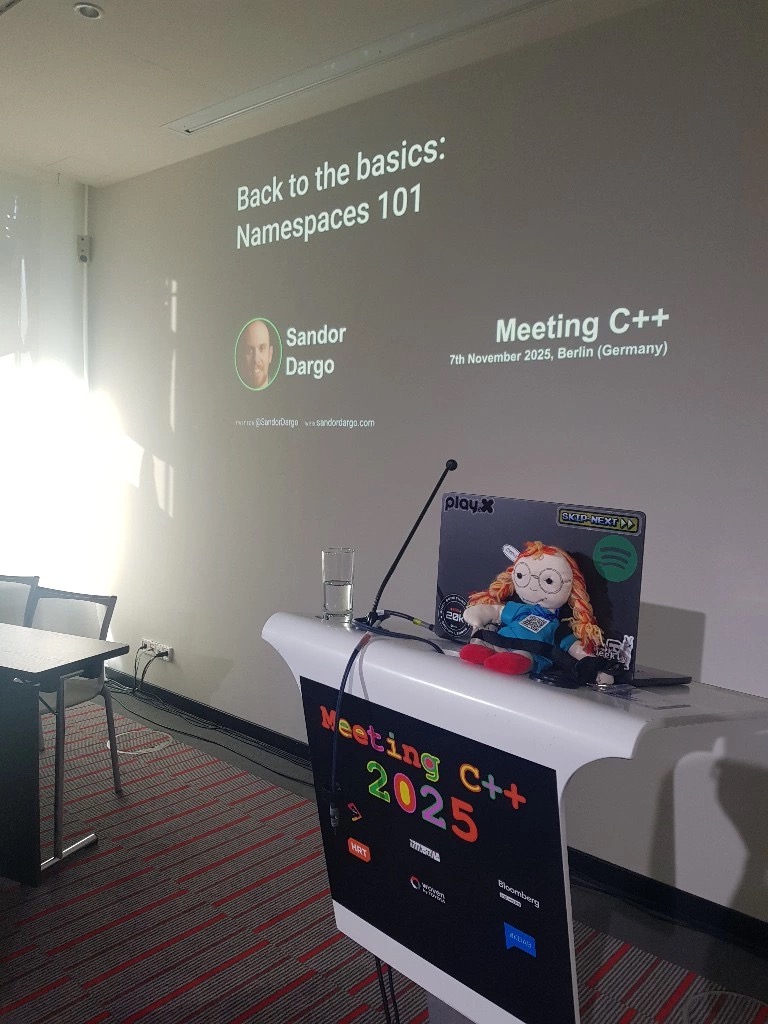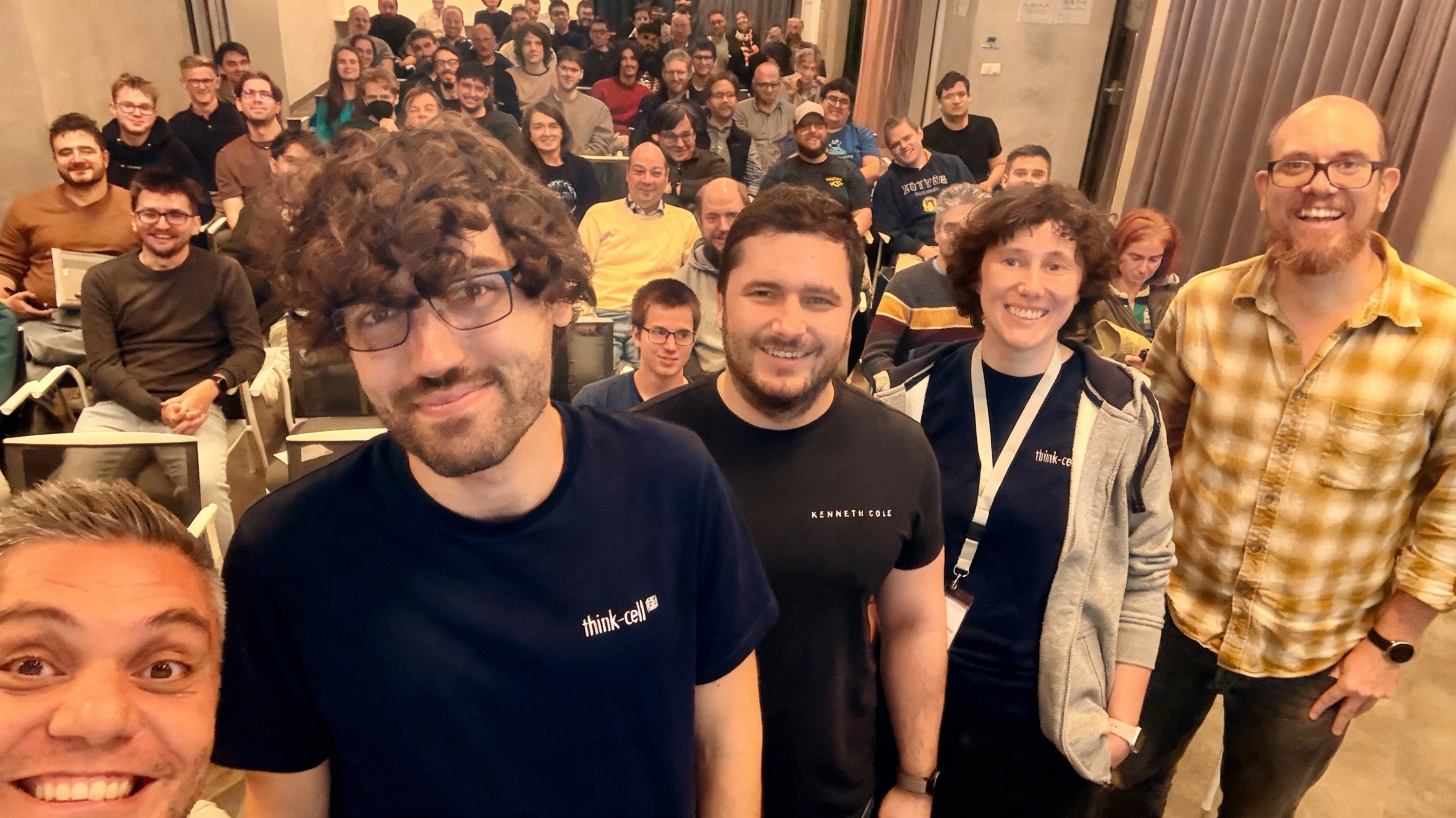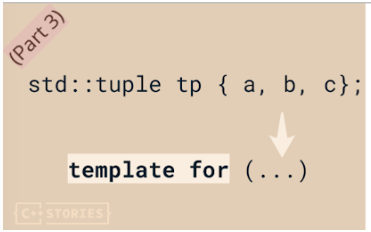Meeting C++ 24h++ is next week!
Meeting C++ is hosting a 24h++ Event on December 18th and 19th! Get your tickets now!
Meeting C++ 24h++
by Jens Weller
From the page:
Meeting C++ 24h++ starts at the 18. December 2025.
Meeting C++ hosts an 24h++ online event with a mix of live content and prerecorded talks from Meeting C++ 2025. With the 24h+ of the event, you should be able to attend some of the talks during the event plus you get access to all talks in the event to view after the event!

 aster Language Engine, Unique Constexpr Debugger, DAP Support, and Much More
aster Language Engine, Unique Constexpr Debugger, DAP Support, and Much More What a year I had! One more conference, one more trip report! I had the chance to go to Meeting C++ and give not just one but two talks!
What a year I had! One more conference, one more trip report! I had the chance to go to Meeting C++ and give not just one but two talks! C++11 gave us
C++11 gave us  The Budapest C++ Meetup was a great reminder of how strong and curious our local community is. Each talk approached the language from a different angle — Jonathan Müller from the perspective of performance, mine from design and type safety, and Marcell Juhász from security — yet all shared the same core message: understand what C++ gives you and use it wisely.
The Budapest C++ Meetup was a great reminder of how strong and curious our local community is. Each talk approached the language from a different angle — Jonathan Müller from the perspective of performance, mine from design and type safety, and Marcell Juhász from security — yet all shared the same core message: understand what C++ gives you and use it wisely. When working with legacy or rigid codebases, performance bottlenecks can emerge from designs you can’t easily change—like interfaces that force inefficient map access by index. This article explores how a simple
When working with legacy or rigid codebases, performance bottlenecks can emerge from designs you can’t easily change—like interfaces that force inefficient map access by index. This article explores how a simple  A missing
A missing  In this final part of the tuple-iteration mini-series, we move beyond C++20 and C++23 techniques to explore how C++26 finally brings first-class language support for compile-time iteration. With structured binding packs (P1061) and expansion statements (P1306), what once required clever template tricks can now be written in clean, expressive, modern C++.
In this final part of the tuple-iteration mini-series, we move beyond C++20 and C++23 techniques to explore how C++26 finally brings first-class language support for compile-time iteration. With structured binding packs (P1061) and expansion statements (P1306), what once required clever template tricks can now be written in clean, expressive, modern C++.